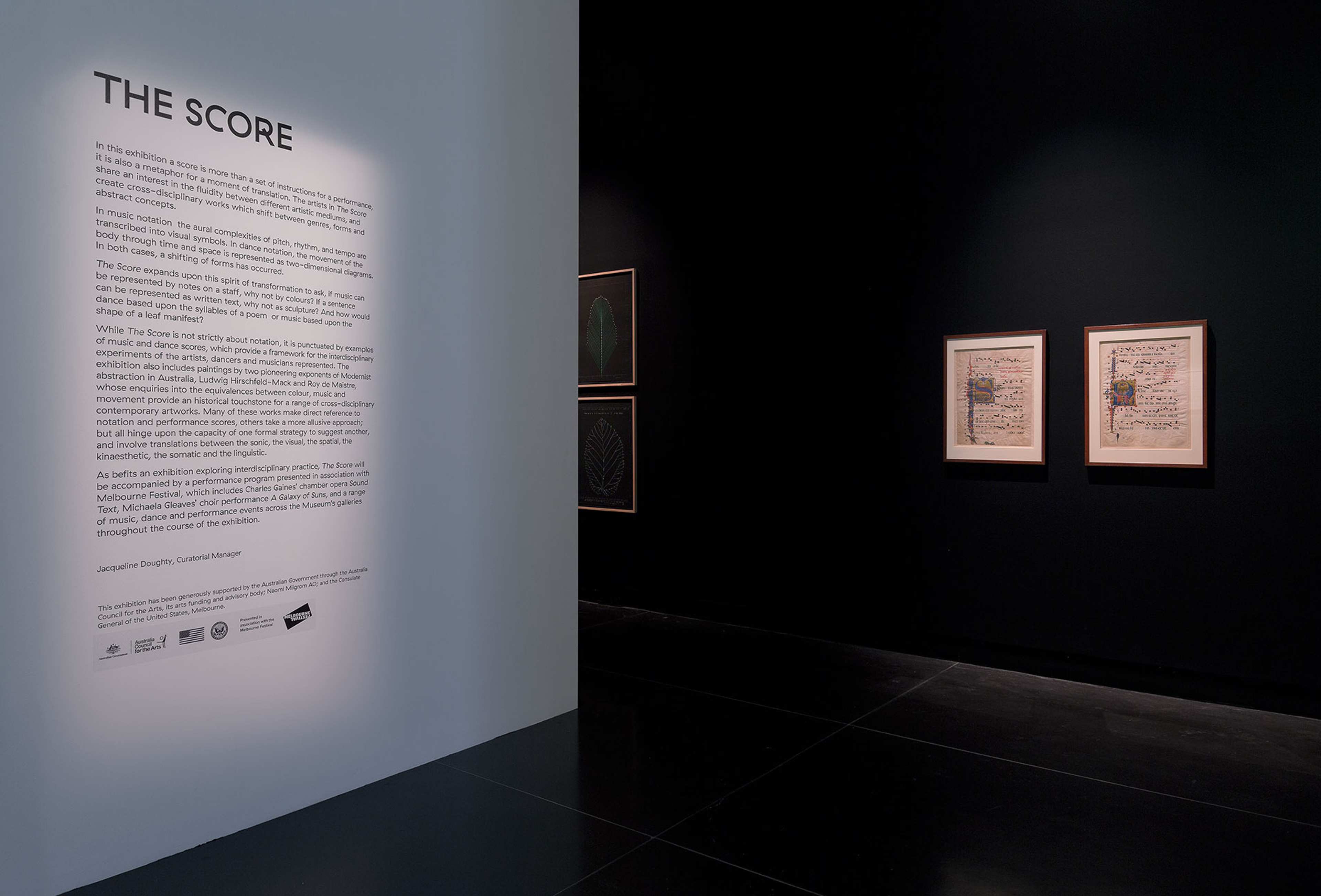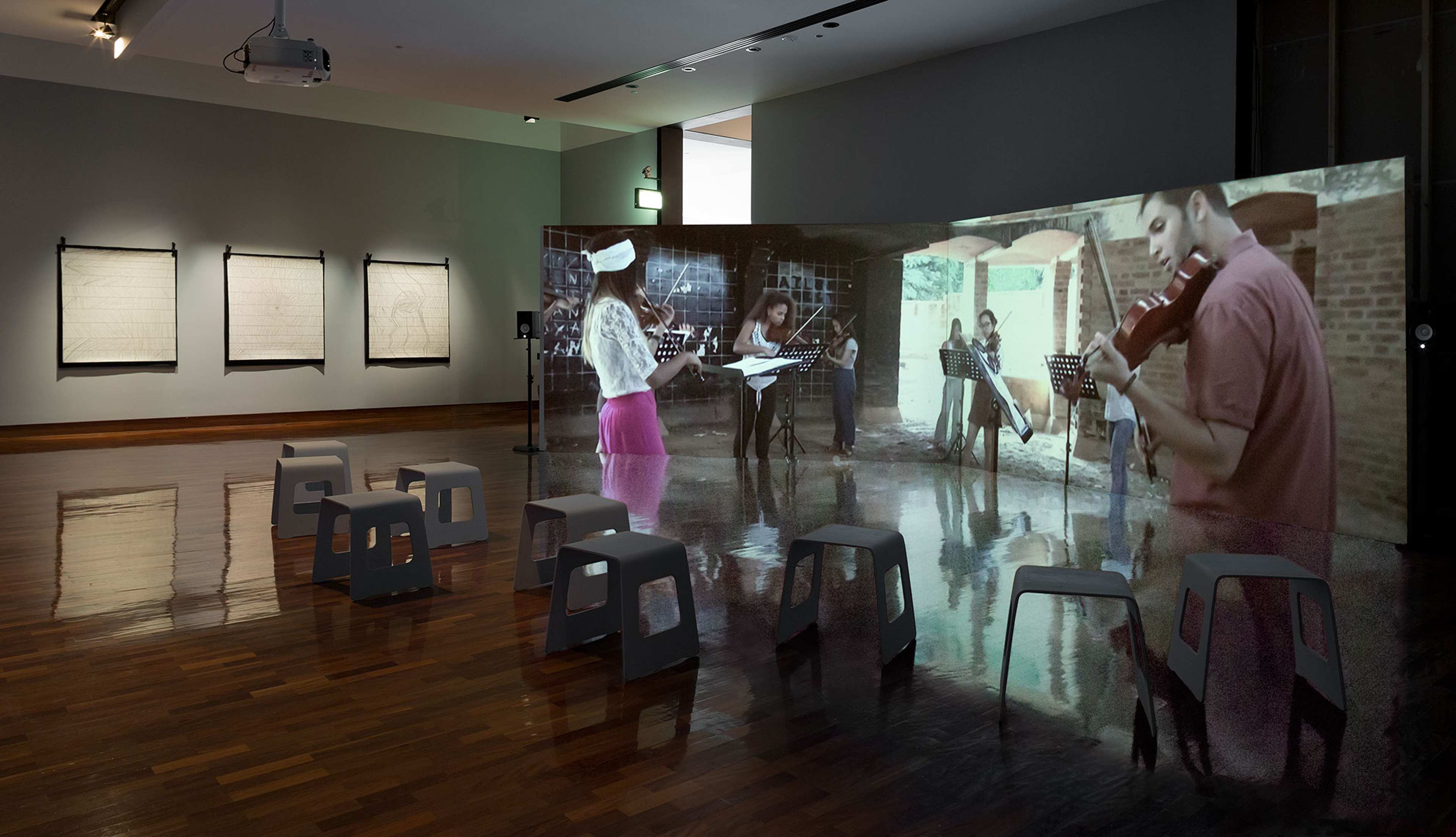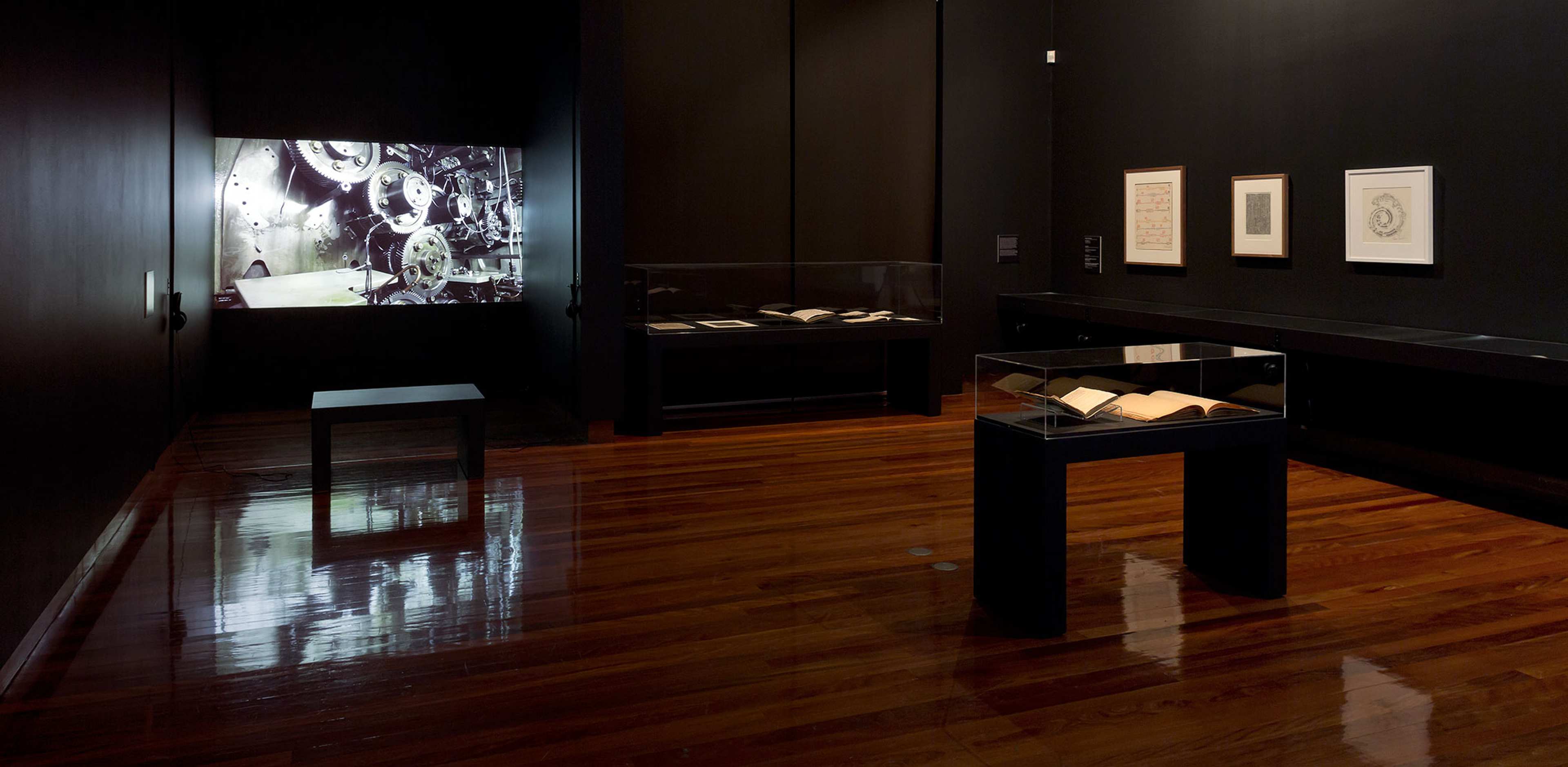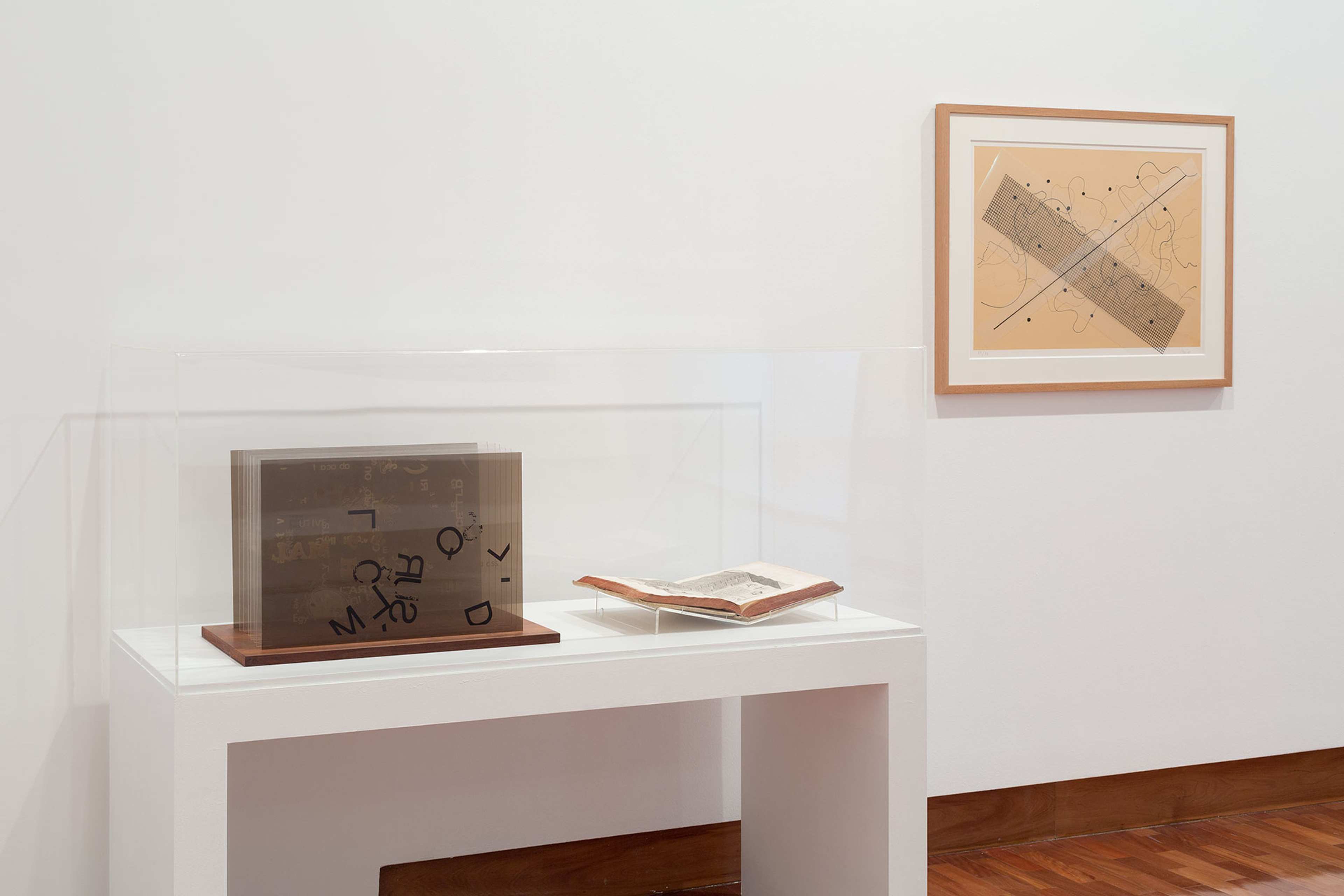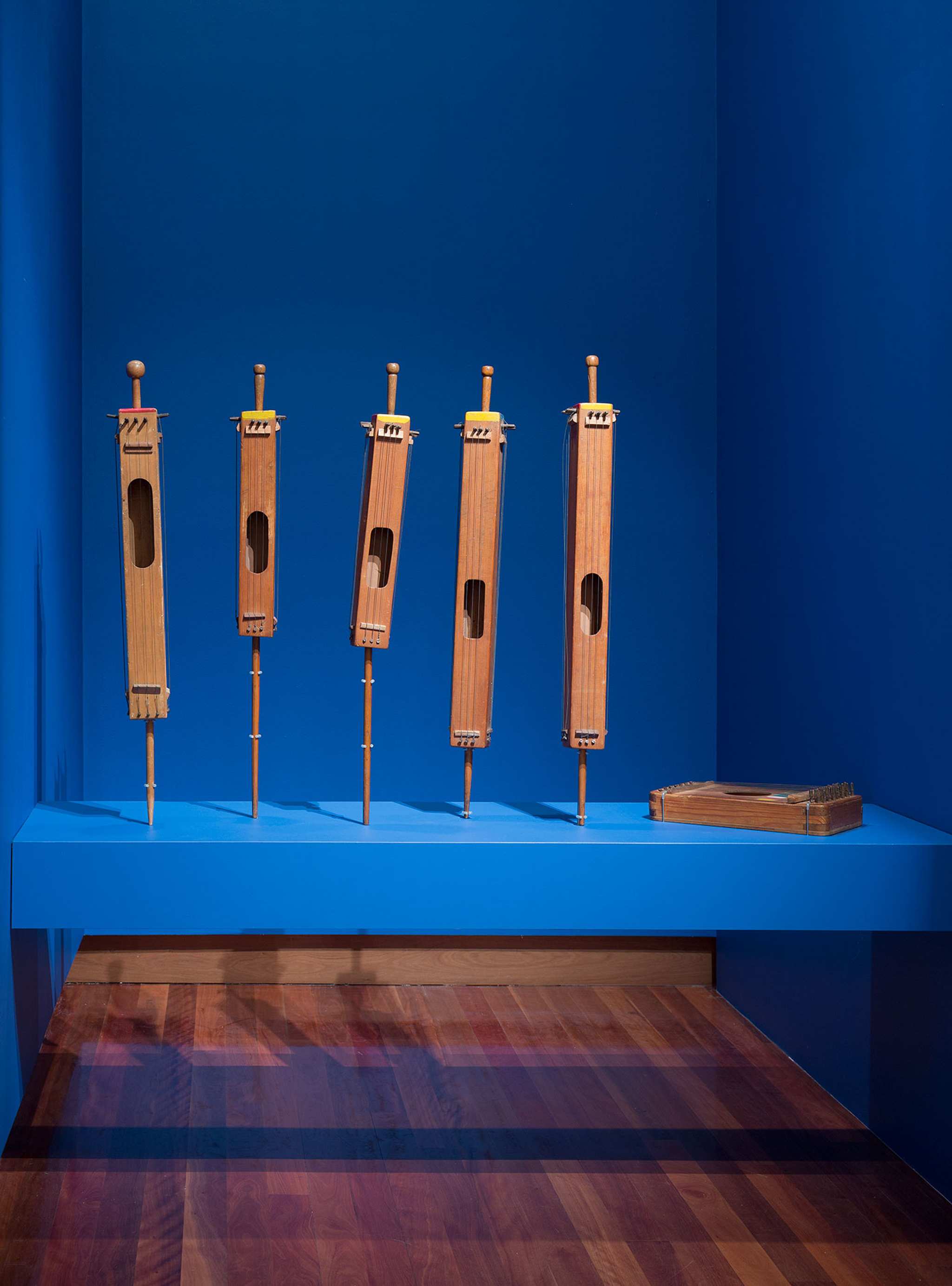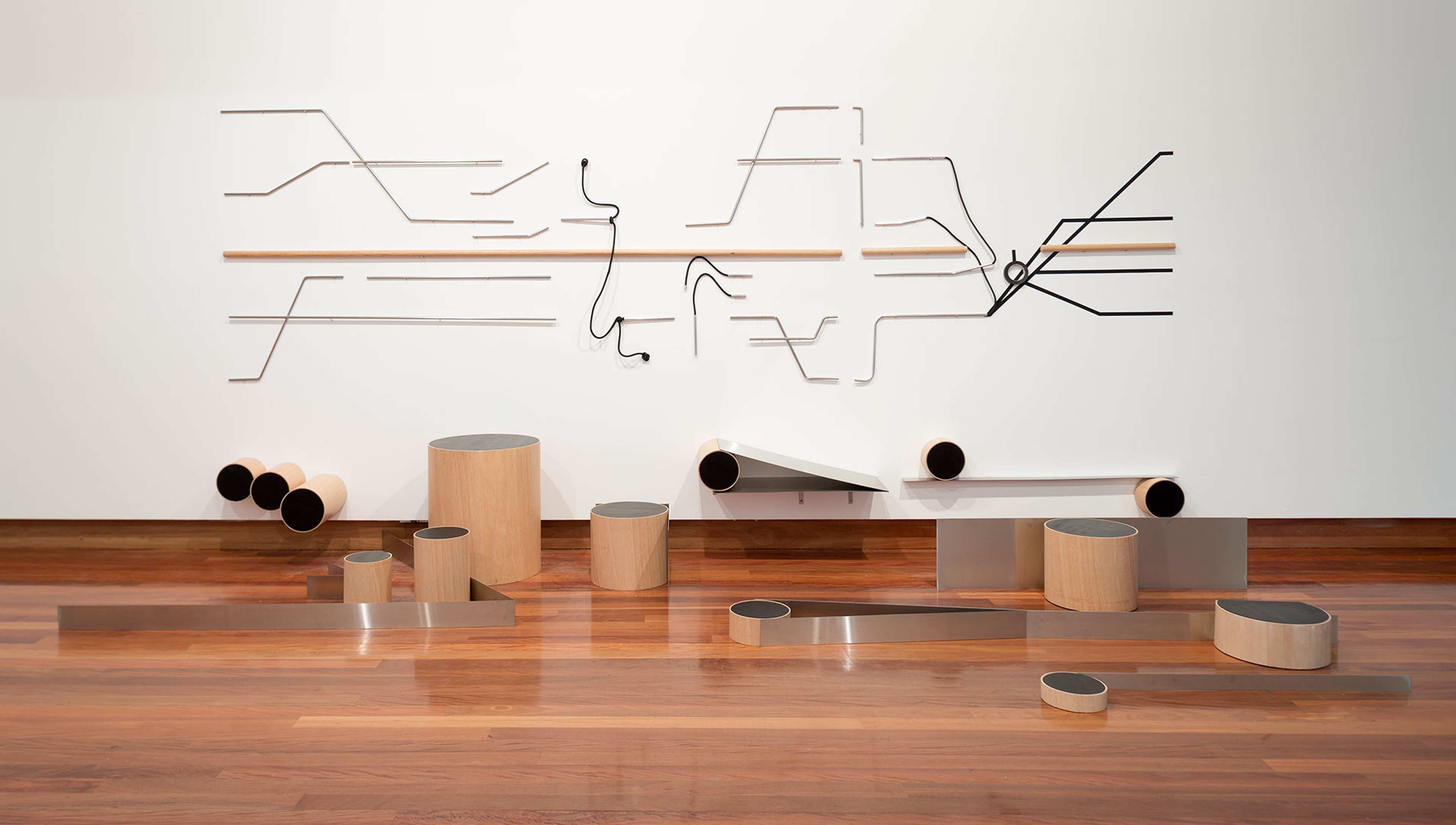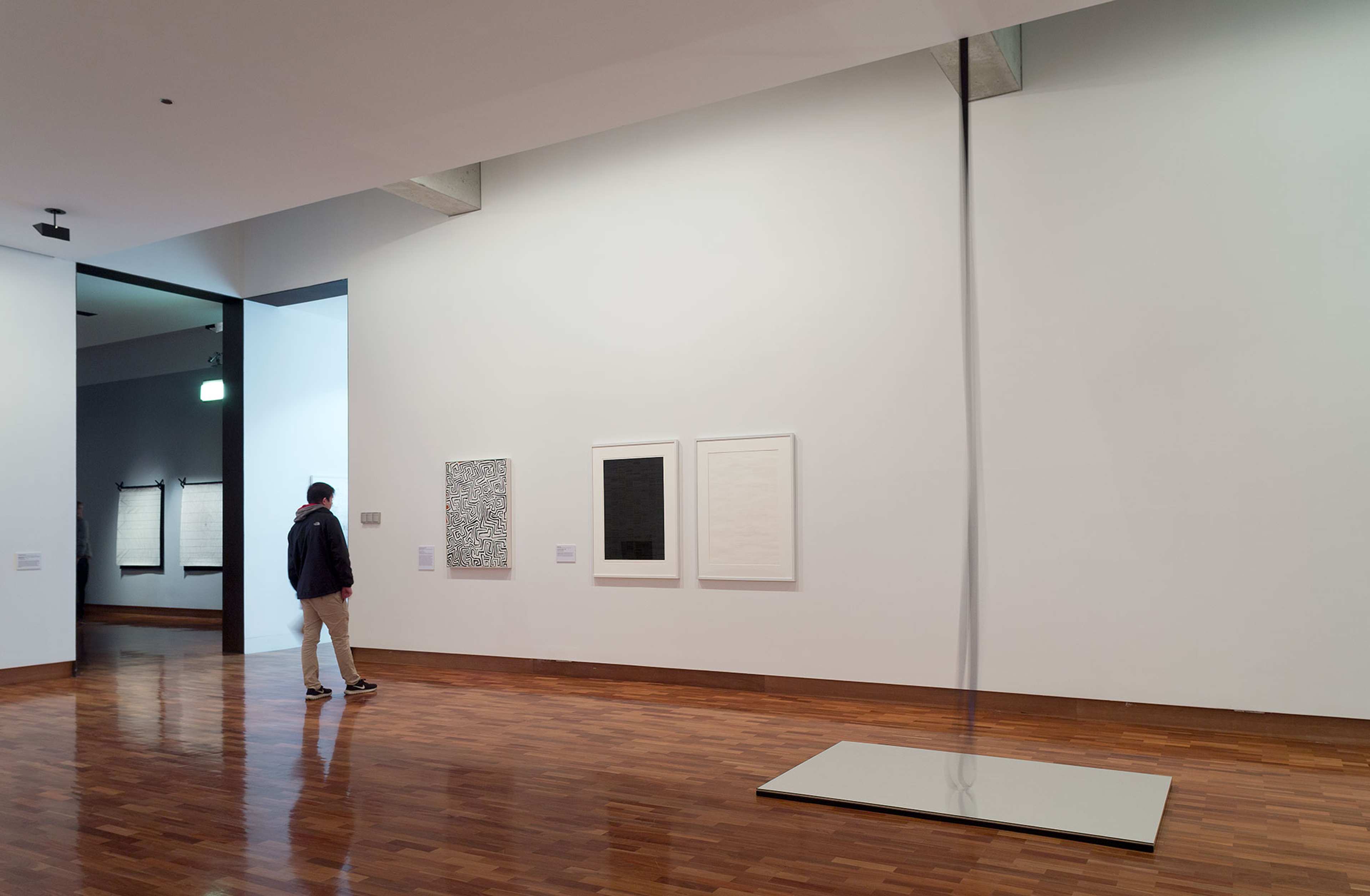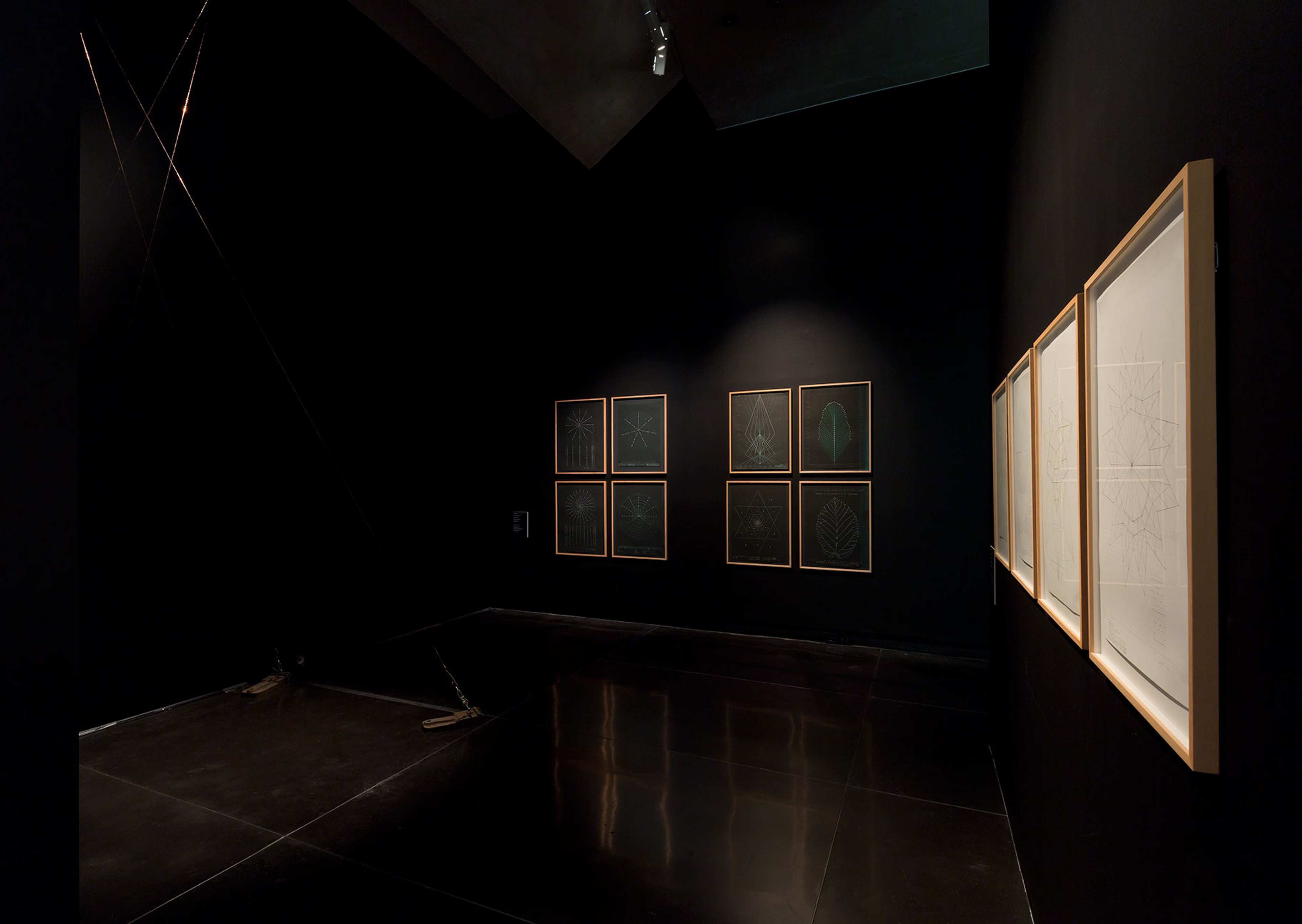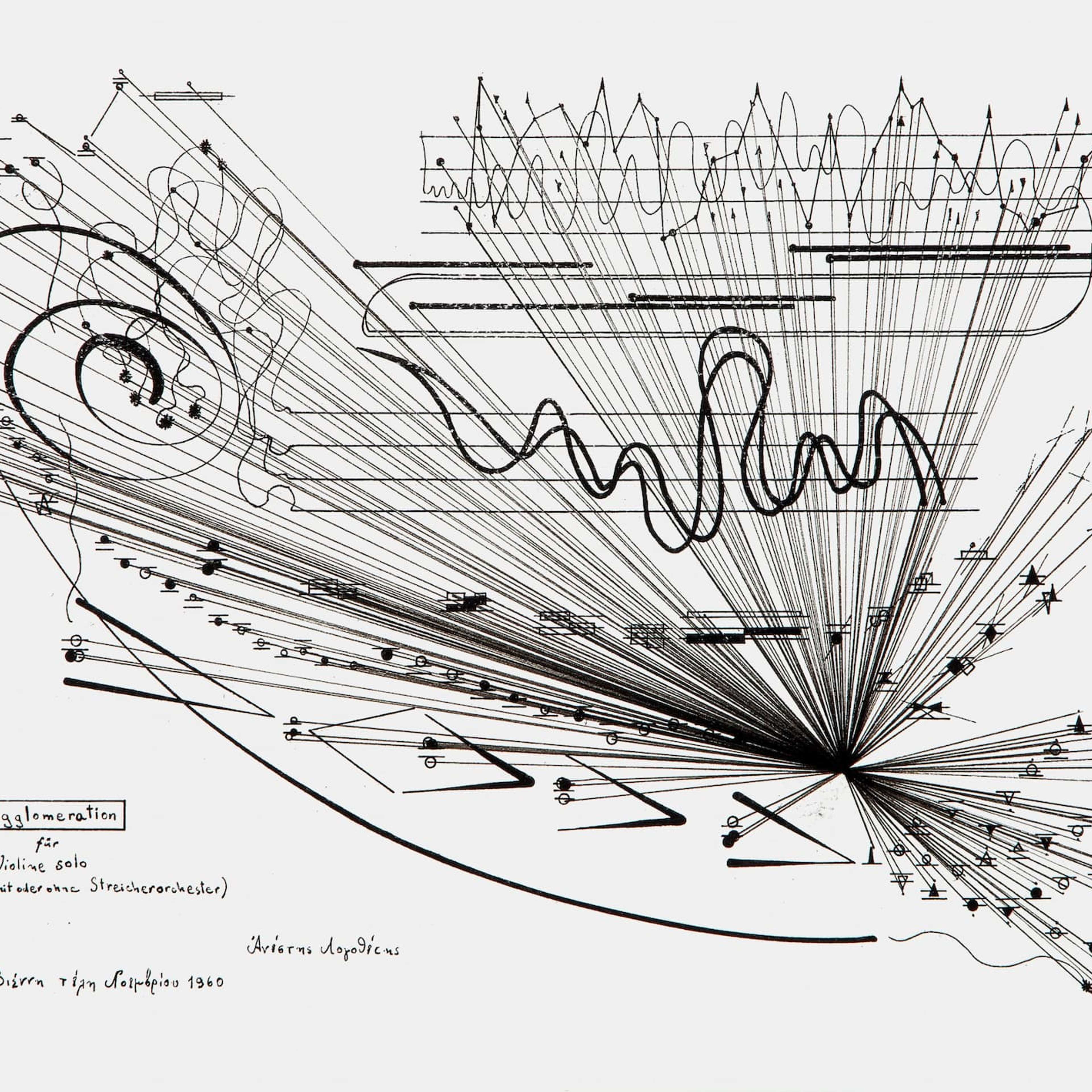
The Score
When
This exhibition has now ended.
Location
A musical score is a form of translation. It transcribes sound into drawing by representing the aural complexities of pitch, rhythm and tempo as visual symbols. The Score expanded upon this spirit of transformation to ask: if music can be represented by notes on a staff, why not by colours? If a song can be performed by the voice, why not with silent hand gestures? And how would dance, based upon the syllables of a poem, or music, based upon the shape of a leaf, manifest?
In this international group exhibition, scores and notation were considered as a starting point to explore the current cross-disciplinary trend in contemporary art, which has seen dance, music and vocal performance increasingly incorporated into visual artworks. The Score presented a range of contemporary and historical artworks that shift between one discipline to another. Musical notation becomes a visual metaphor for a moment of translation between forms – the point where creative leaps and conceptual shifts spark new possibilities.
Spanning all three floors of the Potter, the exhibition included examples of music and dance notation from Medieval manuscripts through to graphic notation of the 1960s alongside artworks and performances. The colour music experiments of Modernist abstract painters such as Roy de Maistre and Ludwig Hirschfeld-Mack complemented a more recent series of works by John Nixon, whose paintings were ‘played’ by a musical ensemble as part of a performance in the gallery. Influential composer John Cage’s movable scores made of Plexiglas and acetate sat alongside Marco Fusinato's drawings that compress Cage’s Water Music score into one moment. Performance videos by Yuki Kihara and Christine Sun Kim & Thomas Mader explored the communicative potential of hand gestures. Sriwhana Spong translated a diary text by ballet dancer Vaslav Nijinsky into choreography, while Nathan Gray transformed the composer Cornelius Cardew’s epic graphic score Treatise into sculpture.
A performance program that accompanied the exhibition included a presentation of US artist Charles Gaines’s chamber opera Sound Text – a vocal and music score derived from political manifestoes; and Michaela Gleave’s Galaxy of Suns – a 36-part choir performance based upon the location of the stars.
Curated by Jacqueline Doughty.
Participating artists and performers
Pia Borg, John Cage, Roy de Maistre, Fayen d’Evie, Marco Fusinato, Charles Gaines, Kurltjunyintja Jackie Giles, Michaela Gleave, Agatha Gothe-Snape, Nathan Gray, Helen Grogan, Ludwig Hirschfeld-Mack, Yuki Kihara, Emily Kam Kngwarray, Shelley Lasica, Sonia Leber & David Chesworth, Dylan Martorell, Angelica Mesiti, John Nixon, Sandra Parker & Rhian Hinkley, Rammey Ramsey, Mia Salsjö, Charlie Sofo, Sriwhana Spong, Christine Sun Kim & Thomas Mader, Danae Valenza, Jude Walton.
- Banner Image:
Marco Fusinato, Mass Black Implosion (Agglomeration, Anestis Logothetis) 2007,
ink on archival facsimile of score. Courtesy the artist and Anna Schwartz Gallery, Melbourne.

